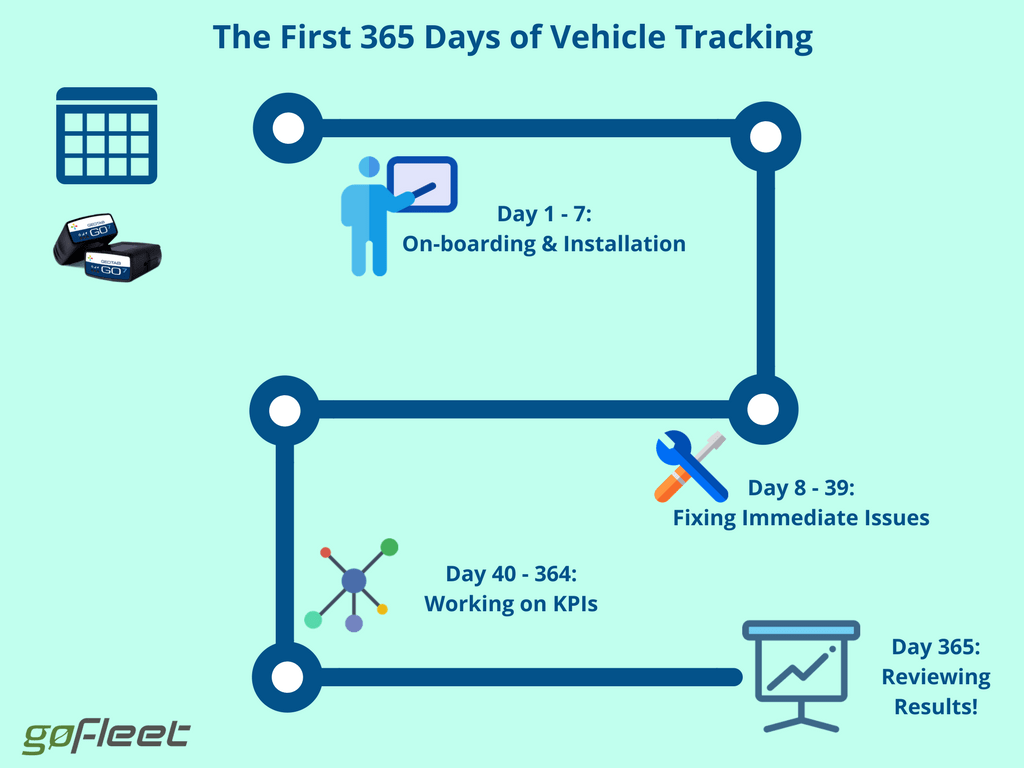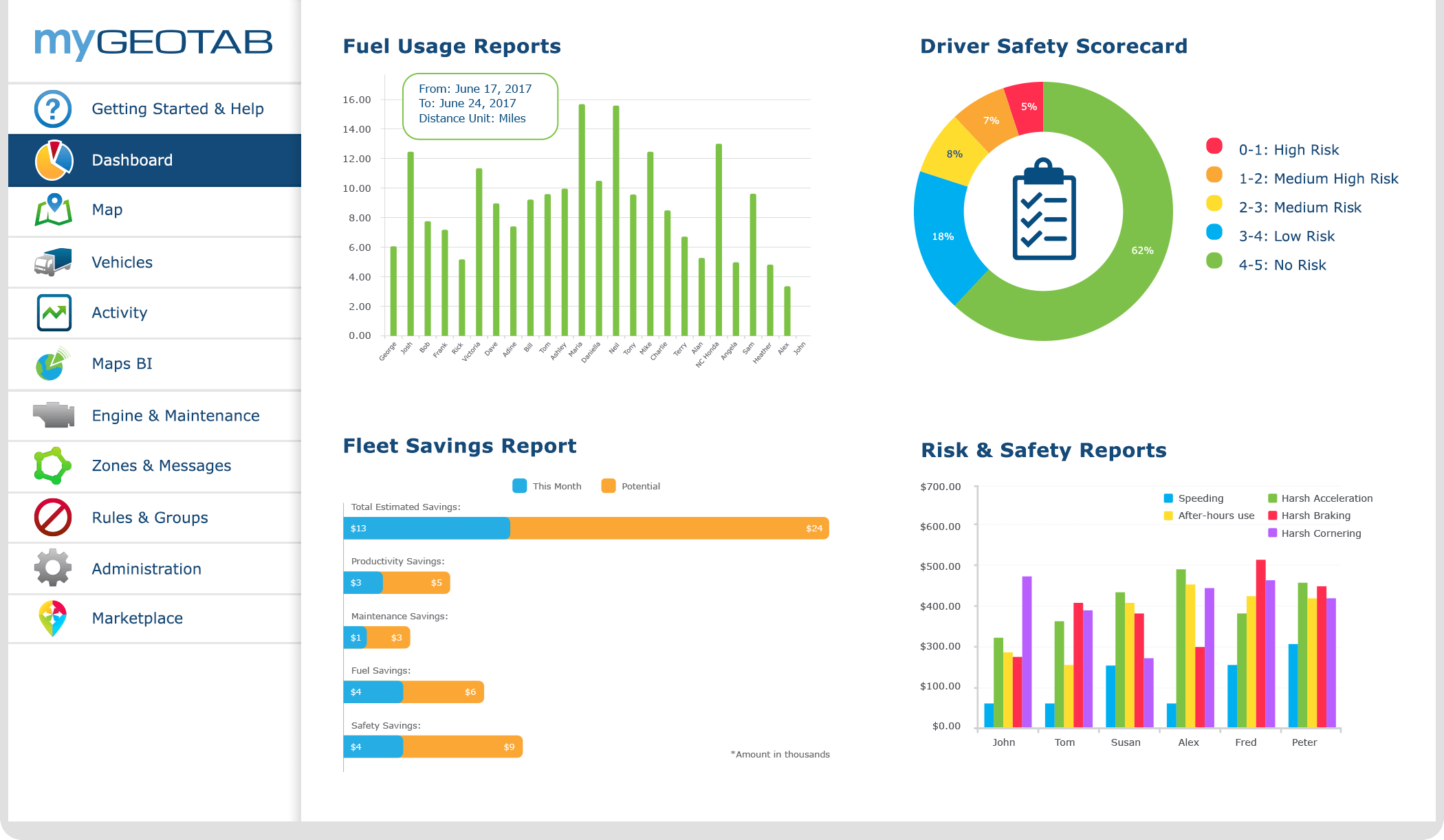The First 365 Days: Vehicle Tracking Solutions
Many fleets – small and big – are installing vehicle tracking solutions. Whether it’s for compliance or for improving productivity, fleets are noticing big changes.
That being said, people usually think about what happens next when a new idea is being implemented. How will the idea fit in immediately? In a week? In a month? Over the next year?
Let’s walk through the first year of using vehicle tracking solutions.
Day 1 to 7: Getting Started.
Onboarding and training
Vehicle tracking solutions are supposed to be easy to use. During the first week, a team of trainers from the fleet solution provider onboards the program. Users can arrange a training meeting is so everyone learns how the program works.
In addition to training, onboarding also involves setting objectives. For example, GoFleet consultants work with fleets to figure out what they want out of the program. After objectives are set, consultants recommend KPIs and set up a dashboard to monitor these areas.
Installation
The other big event is setting up hardware for each vehicle. Depending on the solution, this could mean either professional or self-installation. For example, since GoFleet uses plug-and-play solutions, fleets are able to use their own staff to install devices.
Day 8 – 39: Fixing Immediate Issues
During the first month, immediate issues such as unproductive drivers or unsafe driving are fixed. Here are 2 examples.
Naughty Drivers
After the first month of vehicle tracking, several fleets caught drivers that broke company rules. For example, some drivers were caught taking vehicles on long breaks rather than going to customers. The business quickly moved on to new employees and improved customer satisfaction.
New Driving Policies
In another business, they found that many drivers did not wear their seatbelts. After the first month of tracking, the fleet followed up with individual drivers who failed to wear seatbelts. As a result, seatbelt violations quickly dropped to 0.
Day 40 – 364: Working on KPIs
After fixing immediate problems, fleets can now focus on achieving KPIs. This involves using the vehicle tracking solution to analyze data, create policies, and measure success. Here are a few examples.
Creating a Driver Engagement Program
Rather than focusing on punishing drivers, some fleets set up reward programs. This is where clean driving reports lead to bonuses. As a result, drivers are encouraged to drive safely and this reflected in a reduction in tickets, accidents, and fuel usage.
Another huge area of opportunity is reducing fuel. For example, one company set idling as a KPI and noticed that they were falling behind. The company responded. They set a no-idling policy and enforced this by sending idling alerts to drivers. By the end of the year, idling dropped to under 10 minutes per day.
Protecting Assets
Vehicle tracking solutions can also increase asset life. For fleets that prioritized preventative maintenance, ideas like active engine checking and service reminders help accomplish this goal. After using these ideas, mechanics found the new process to be easier and more effective.
Day 365: Reviewing Results!
For many fleets, the benefits of vehicle tracking solutions quickly outweighed the cost. For example, for the city of Charlottetown, their system helped improve processes in salt monitoring, idling, and preventive maintenance. This easily saved over $100,000 per year.




